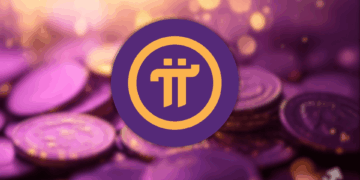Central Bank Digital Currencies (CBDCs) herald a new era of digital money, promising efficiency, financial inclusion, and enhanced monetary policy control.
- CBDCs are digital currencies issued by central banks, offering efficiency and financial inclusion.
- CBDCs promise faster transactions, lower costs, and improved monetary policy control.
- Challenges include privacy concerns, financial stability, and technological infrastructure requirements.
In recent years, the financial landscape has witnessed a paradigm shift with the emergence of Central Bank Digital Currencies (CBDCs). These digital currencies, issued and controlled by central banks, are set to revolutionize the way transactions are conducted and value is stored. As digitalization continues to reshape the world, CBDCs herald a new era of digital money that promises greater efficiency, transparency, and financial inclusion.
Understanding CBDCs
Central Bank Digital Currencies (CBDCs) are digital representations of a country’s fiat currency issued and regulated by the central bank. Unlike cryptocurrencies such as Bitcoin or Ethereum, CBDCs are backed by the full faith and credit of the respective government and hold the same value as traditional banknotes and coins. The main difference lies in their form, being entirely digital and typically operating on blockchain or distributed ledger technology.
New Era of CBDCs
Efficiency and Financial Inclusion
One of the primary advantages of CBDCs is the potential for faster and more efficient transactions. Unlike traditional banking systems that rely on intermediaries and can take several days to settle cross-border payments, CBDCs could facilitate instantaneous peer-to-peer transactions. This efficiency can significantly benefit the unbanked and underbanked populations, fostering greater financial inclusion.
Reducing Transaction Costs
CBDCs have the potential to lower transaction costs associated with traditional payment methods. By eliminating intermediaries and streamlining the payment process, businesses and consumers can save on transaction fees, stimulating economic growth.
Enhancing Monetary Policy
CBDCs offer central banks more direct control over monetary policy. By having real-time insights into transactions and money flows, policymakers can respond more effectively to economic challenges, such as inflation and deflation, ensuring stability and sustainable growth.
Global Adoption and Initiatives
Several countries have already started exploring CBDCs, while others have launched pilot projects to assess their feasibility. For instance:
- China’s Digital Yuan
China has been at the forefront of CBDC development, piloting its digital currency electronic payment (DCEP) since 2020. The digital yuan aims to reduce the country’s dependence on cash and increase the efficiency of domestic and international transactions.
- Sweden’s e-krona
In response to the decline in cash usage, the Swedish central bank, Riksbank, has been investigating the possibility of launching an e-krona. The e-krona project aims to ensure that the public will continue to have access to a secure and reliable form of money.
- The Bahamas’ Sand Dollar
The Central Bank of The Bahamas launched the Sand Dollar in 2020, becoming the first country in the world to officially roll out a CBDC. The digital currency aims to improve financial access and reduce transaction costs in the archipelago.
Challenges and Concerns
- Privacy and Security
CBDCs raise concerns about privacy and data security. As transactions are recorded on a distributed ledger, it becomes essential to safeguard user information from potential breaches and misuse.
- Financial Stability
The widespread adoption of CBDCs could lead to an outflow of bank deposits into digital currency, impacting the stability of traditional financial institutions.
- Technological Infrastructure
To implement CBDCs successfully, countries must have robust and reliable technological infrastructure in place. This includes addressing issues related to scalability, interoperability, and cyber resilience.
Conclusion
CBDCs represent a significant milestone in finance and money evolution. They have the potential to improve financial inclusion, lower transaction costs, and enhance monetary policy. However, concerns about privacy, security, and financial stability must be addressed for seamless integration into the existing financial system. Collaboration among governments, financial institutions, and technology experts is crucial. Only through collective efforts can the transformative potential of CBDCs be unlocked and a new era of digital money created that benefits all segments of society.















